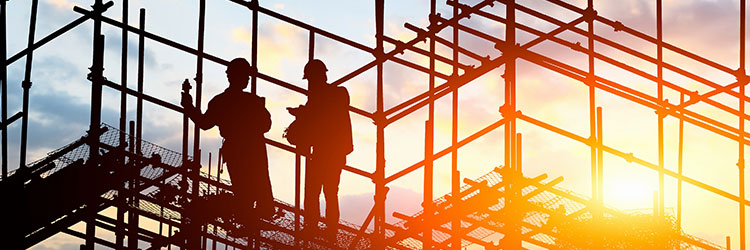To ensure the success of your commercial project, you need a builder who has the knowledge, labour, experience, and communication skills needed to streamline the delivery process and ensure the final result matches your vision.
Failure to do so can result in costly delays, frustration, emotional stress, and – in the worst case scenario – a project stuck in limbo. To avoid these problems, you need to know why it’s important to choose the right commercial builder in the first place, and how to go about doing it.
Here are some useful tips to help you achieve just that.
Qualifications and Insurance
This should go without saying. But any commercial builder you approach must be registered and have the correct licenses, qualifications, and insurance coverage.
But how do you know what the ‘correct’ qualifications are? Well, that depends on where you are based, as each state and territory has their own eligibility standards for commercial builders. Therefore, check in with the relevant building authority in your state or territory. They will tell you what kind of skills, qualifications, and knowledge a commercial has to possess in order to be registered.
In regards to insurance, not all coverage is equal. This is important as you want to be sure you are covered for the specific components that relate to your project. For this reason, be sure to compare coverage between each builder so that you know what is (and is not) covered in their proposal.
Good Communication Skills
A builder can have all the skills and knowledge in the world. But if they are hard to communicate with – whether they are rude, hard to understand, slow to reply to calls and emails, or they just don’t seem to be on the same page as you – then you are going to have problems down the line.
That’s why it’s important to get to know your commercial builder before you agree to their final proposal. Some questions you can ask yourself at this stage may be: Do you get along with them? Do they have a clear understanding of your wants, needs, concerns, and desires? And are they able to articulate your project needs – both in speaking and writing – in a way that makes sense to you?
Don’t be afraid to take your time with this decision. After all, you will be communicating with your commercial builder on a near daily basis for what could be a yearlong commitment. So make sure the builder you choose matches your style of communication.
Experience and References
Go for a builder who has experience in designing and building the same kind of commercial project as yours. This way, you will feel confident knowing they have a clear understanding of the unique challenges you face (plus how to overcome those challenges). And that they have the necessary connections to assemble the best team for the job.
What’s the best way to gauge a builder’s experience? Start by checking out their online portfolio. On there you can look at photos of completed projects and in most cases a brief summary describing the process and outcomes.
To go one step further, ask the builder for references of past clients. This will give you an idea of what to expect from the process, and since the opinion is coming from a third-party you can trust their feedback is honest and reliable too.
If you need help with choosing the right commercial builder, look no further than Trident Projects. From planning to design and construction, we have the skills, qualifications, and experience to manage and carry out every aspect of your commercial project.
Contact Trident Projects on (02) 9743 6333 for tailored advice and an estimate.
